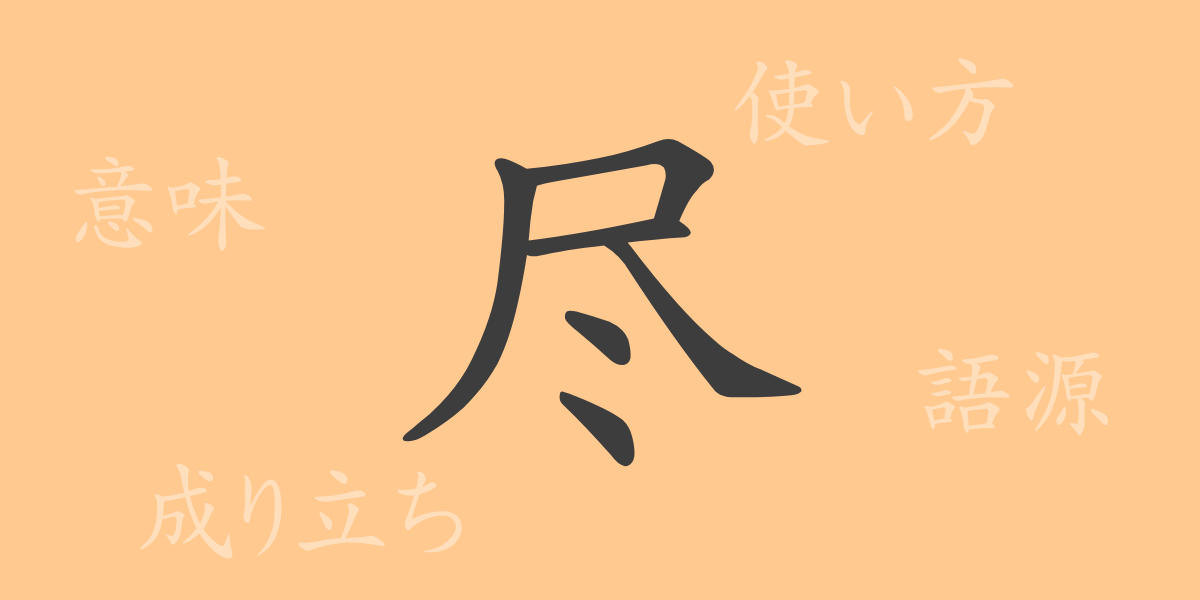The beauty of Japanese lies in its complex character system, where each kanji carries embedded meanings and history. Focusing on the common Japanese kanji ‘尽’ (じん), this article explores its origins and contemporary usage. Understanding the meanings encapsulated in this character can lead to a deeper appreciation of the Japanese language.
Origins of 尽 (じん)
The kanji ‘尽’ originates from ancient China, initially representing the act of tilting a pot to pour out its contents completely. This image of liquid flowing from a pot evolved to symbolize ‘exhausting’ or ‘doing something thoroughly,’ adapting to various contexts over time.
Meaning and Usage of 尽
‘尽’ carries meanings like ‘to use up,’ ‘to exhaust,’ and ‘to carry out fully.’ This character often conveys positive nuances of fulfilling duties or exerting effort and is commonly used in everyday life and business settings.
Readings, Stroke Count, and Radical of 尽
Let’s explore the details of the kanji ‘尽’:
- Readings: On’yomi is ‘ジン’; Kun’yomi includes ‘つくす’ (to exhaust) and ‘つきる’ (to run out).
- Stroke Count: ‘尽’ consists of 8 strokes.
- Radical: The radical for ‘尽’ is ‘尸’.
Phrases and Proverbs Using 尽
‘尽’ appears in various idioms, phrases, and proverbs, each reflecting its underlying meanings:
- 尽力 (じんりょく): To exert one’s power to accomplish something.
- 尽忠 (じんちゅう): To serve with loyalty, typically towards a lord or nation.
- 愛想尽かし (あいそつかし): To become cold or indifferent, having exhausted patience or affection.
- 金尽き力尽きる (かねつきちからつきる): To exhaust both finances and physical strength.
Conclusion on 尽
The kanji ‘尽’, with its meanings of exhausting and fulfilling, is deeply embedded in our daily lives. Its form originates from the ancient Chinese depiction of a pot completely emptying its contents, influencing various expressions and idioms to this day. Understanding the meanings behind characters like ‘尽’ enriches the appreciation of the depth and richness of the Japanese language.

























